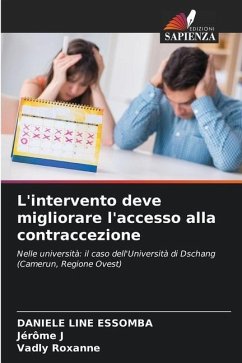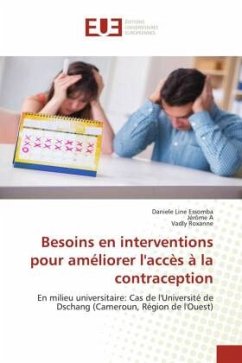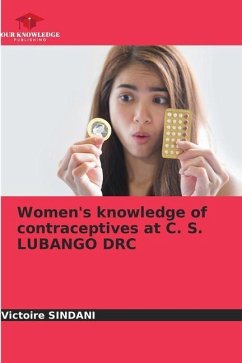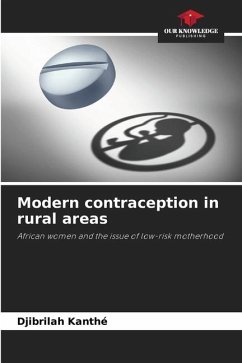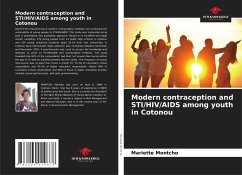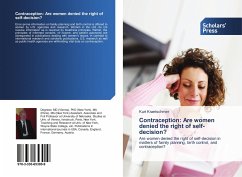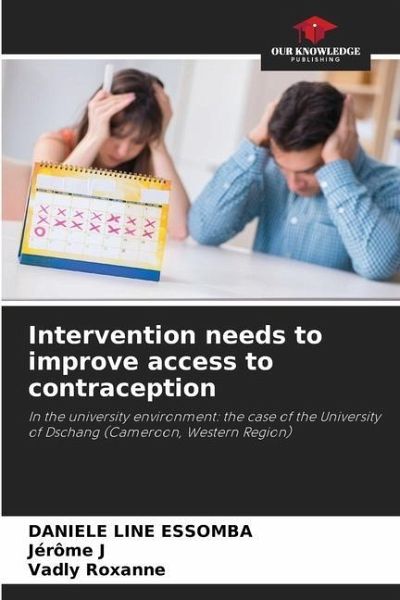
Intervention needs to improve access to contraception
In the university environment: the case of the University of Dschang (Cameroon, Western Region)
Versandkostenfrei!
Versandfertig in 6-10 Tagen
29,99 €
inkl. MwSt.

PAYBACK Punkte
15 °P sammeln!
This article is academic research aimed at improving access to contraceptive methods among young university students, who are a particularly vulnerable and important target group for family planning. Studies have shown that this group generally has the highest levels of sexually transmitted infections, the highest number of unwanted pregnancies, sometimes ending in clandestine or unsafe abortions or without contraception (Curi et al 2001), and multiple sexual partnerships. Through contraception, family planning contributes significantly to the reduction of maternal, neonatal and infant mortali...
This article is academic research aimed at improving access to contraceptive methods among young university students, who are a particularly vulnerable and important target group for family planning. Studies have shown that this group generally has the highest levels of sexually transmitted infections, the highest number of unwanted pregnancies, sometimes ending in clandestine or unsafe abortions or without contraception (Curi et al 2001), and multiple sexual partnerships. Through contraception, family planning contributes significantly to the reduction of maternal, neonatal and infant mortality; to the improvement of family well-being and to the prevention of unwanted pregnancies (UNFPA et al., 2013). Despite the many efforts made, the proven effectiveness and the availability of contraceptives, contraceptive use is still low, especially in African countries. In Cameroon, contraceptive prevalence among women aged 15 to 49 of reproductive age is 23.7% and unmet need for planning is 17% (DHS-MICS 2011).



